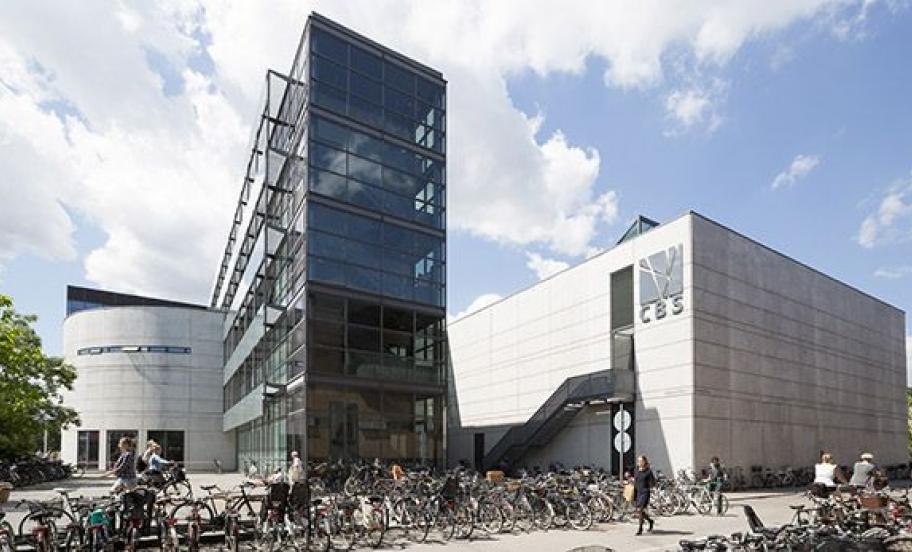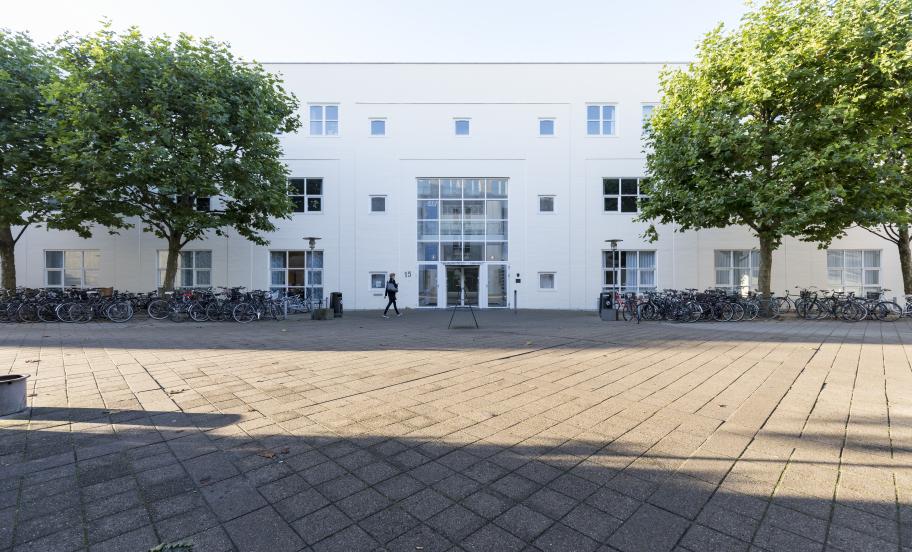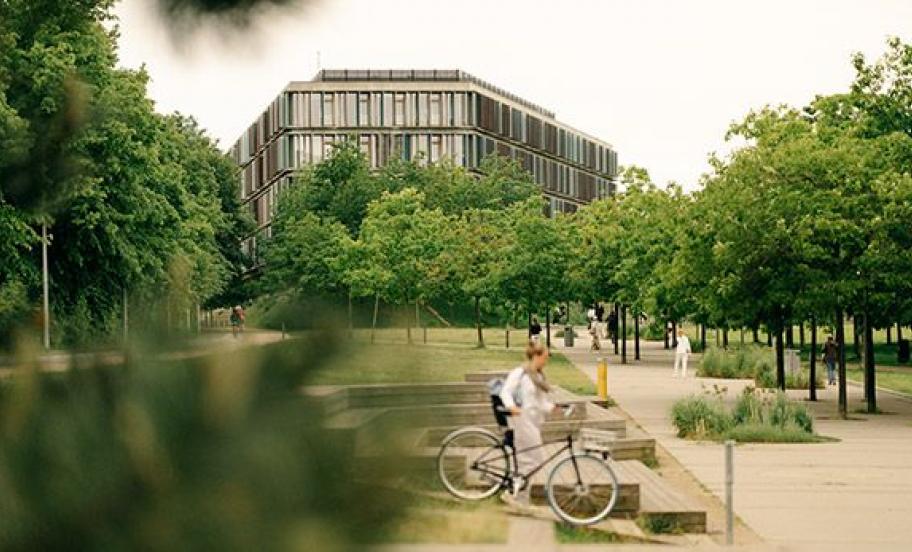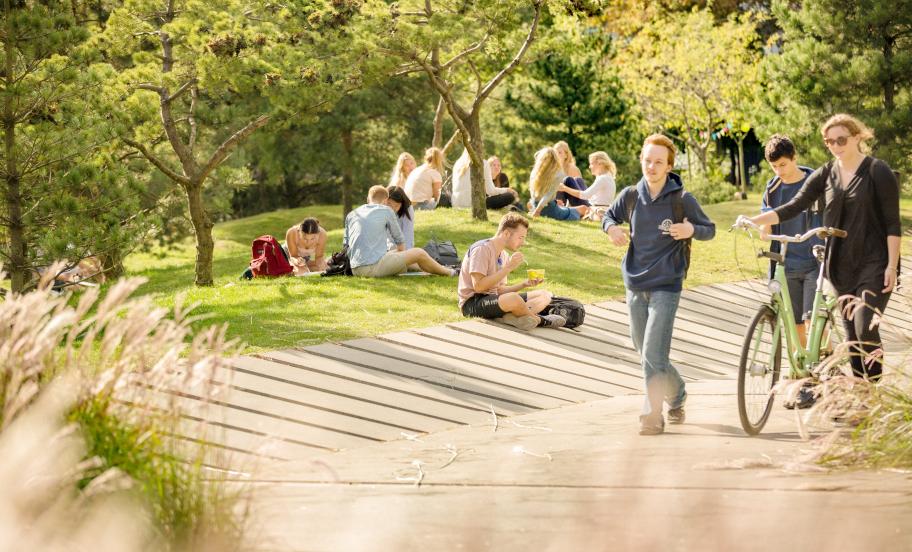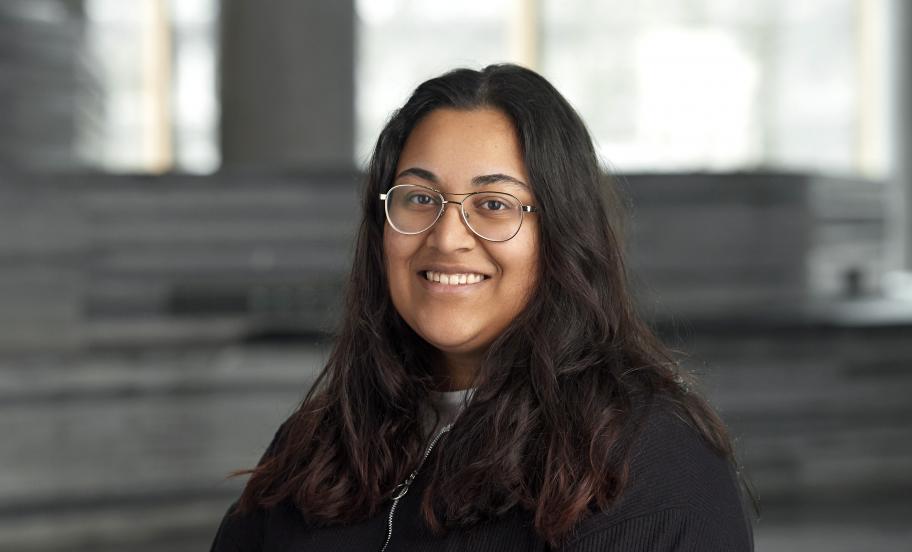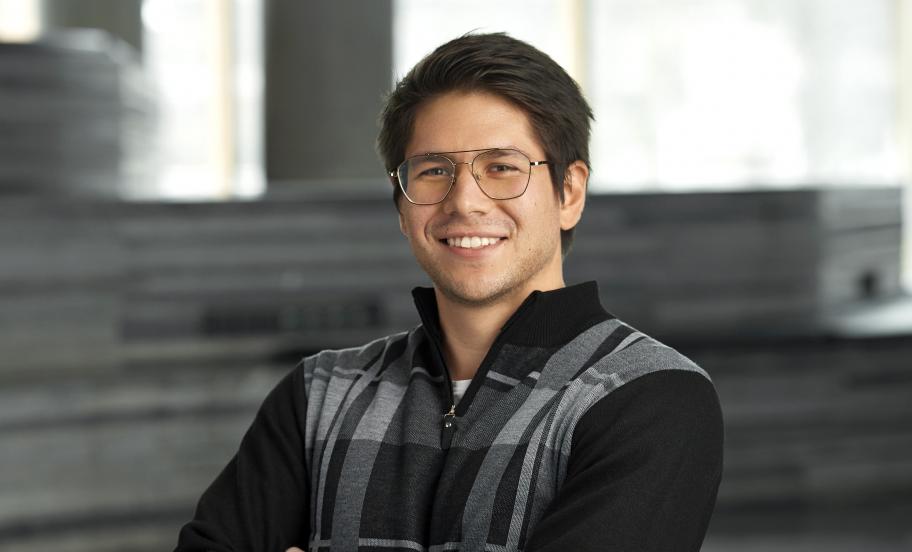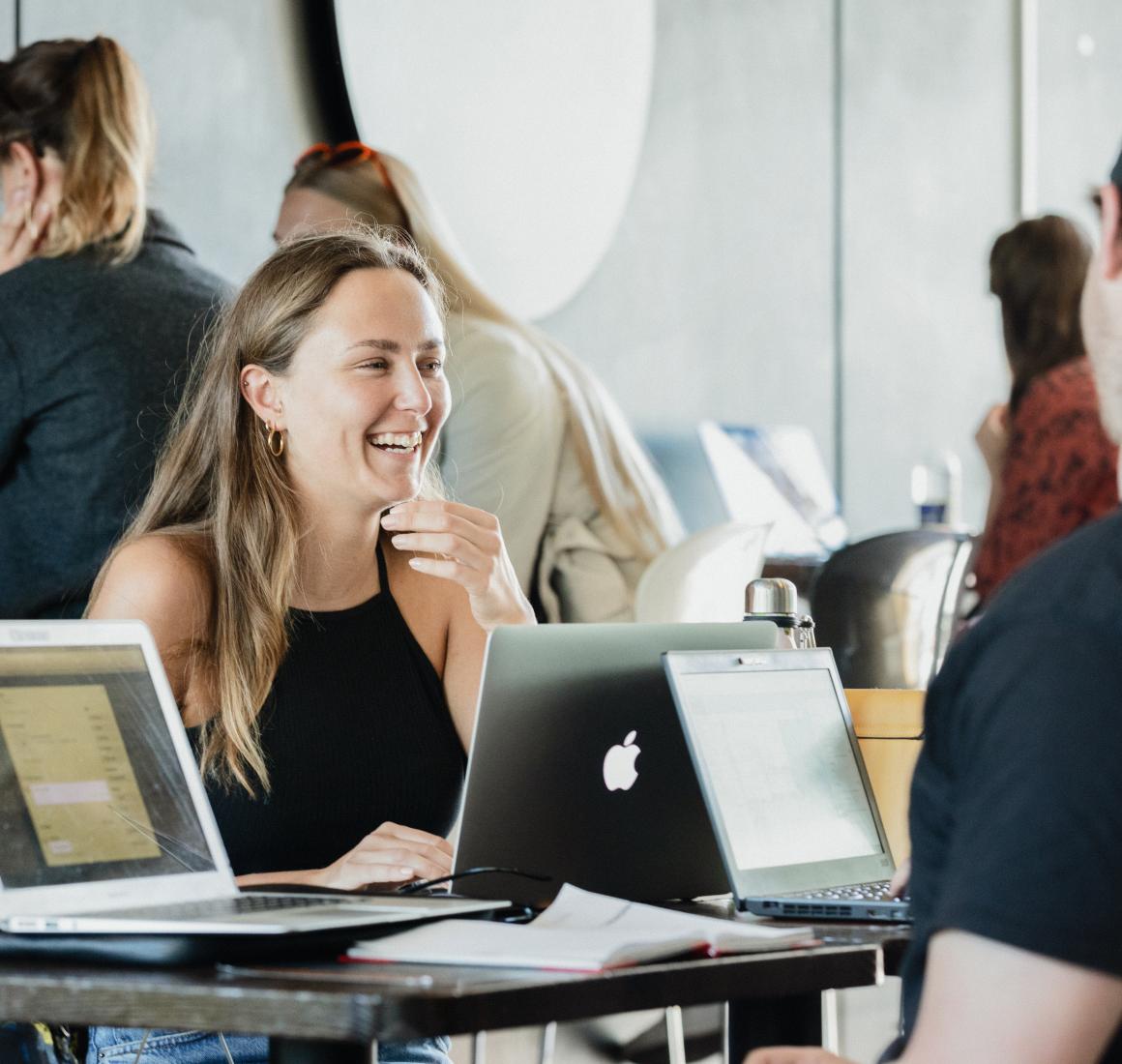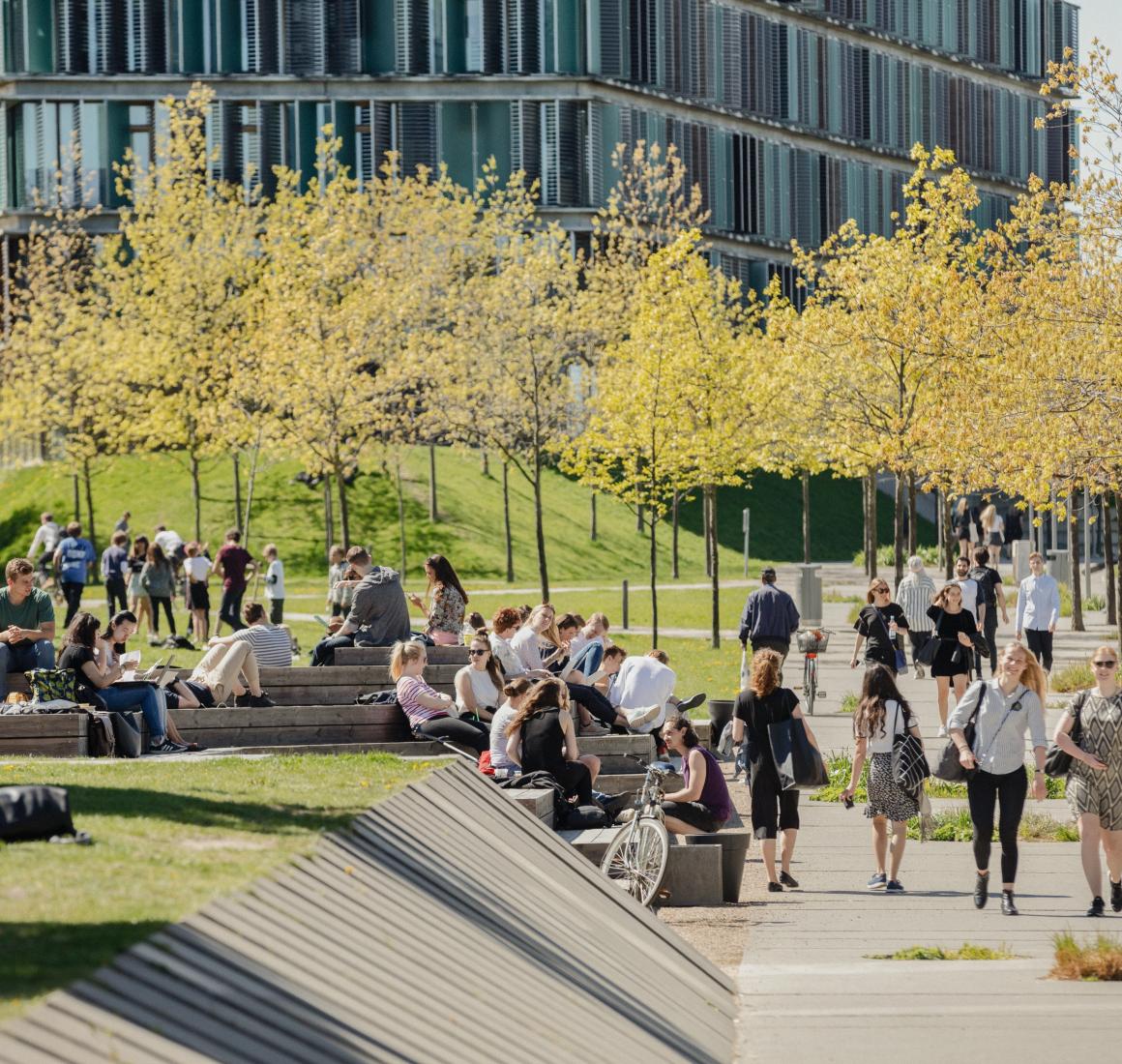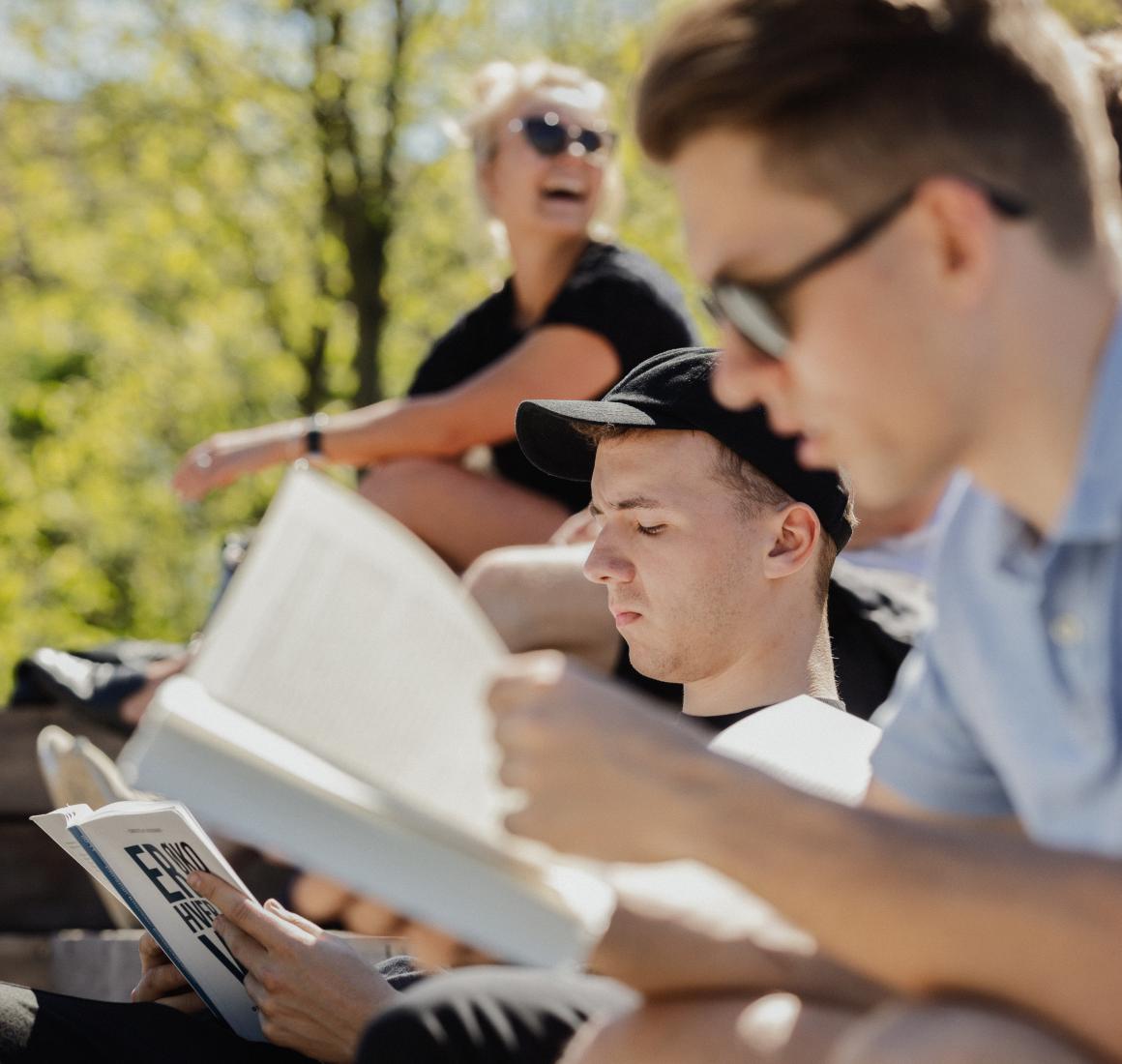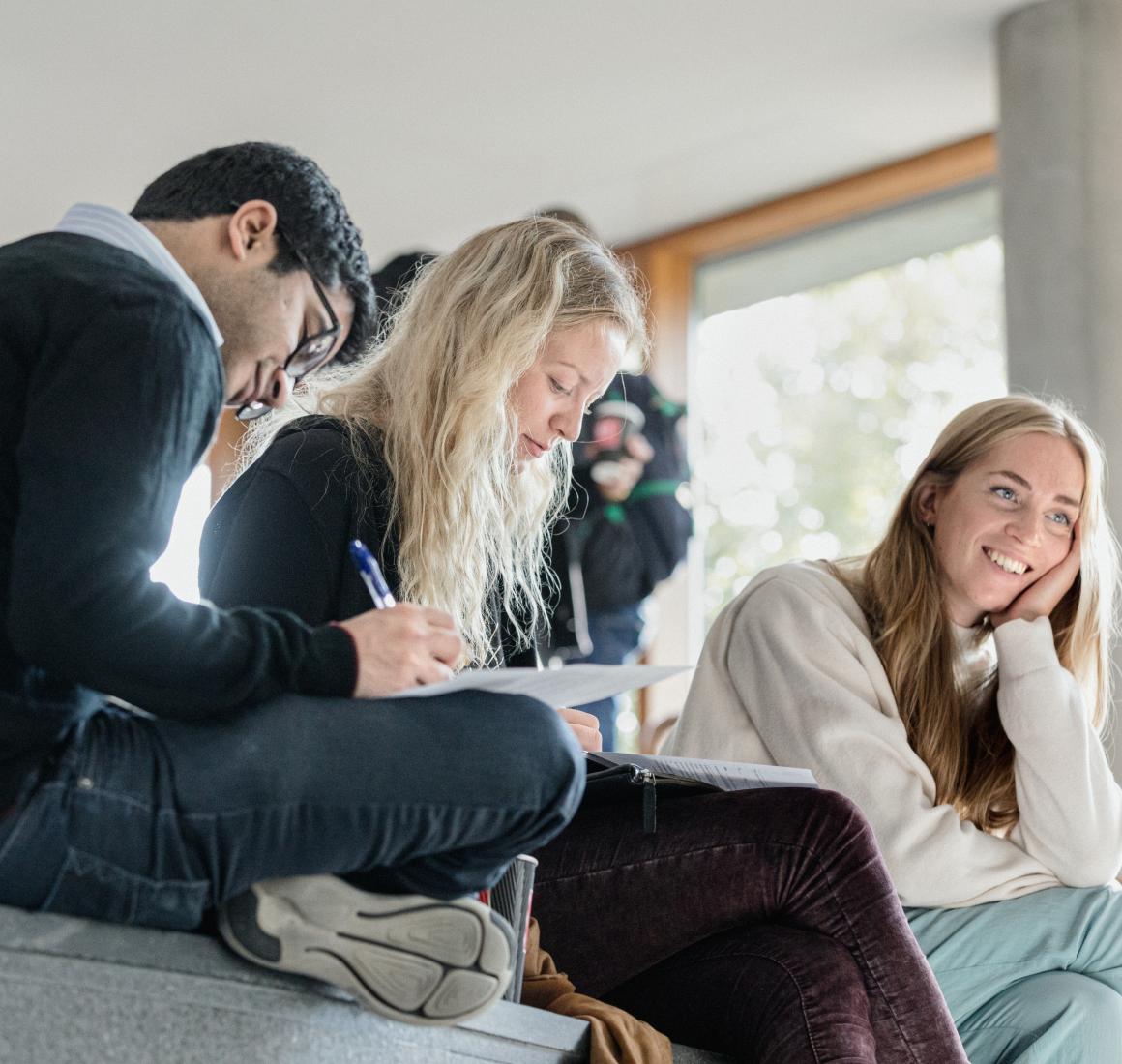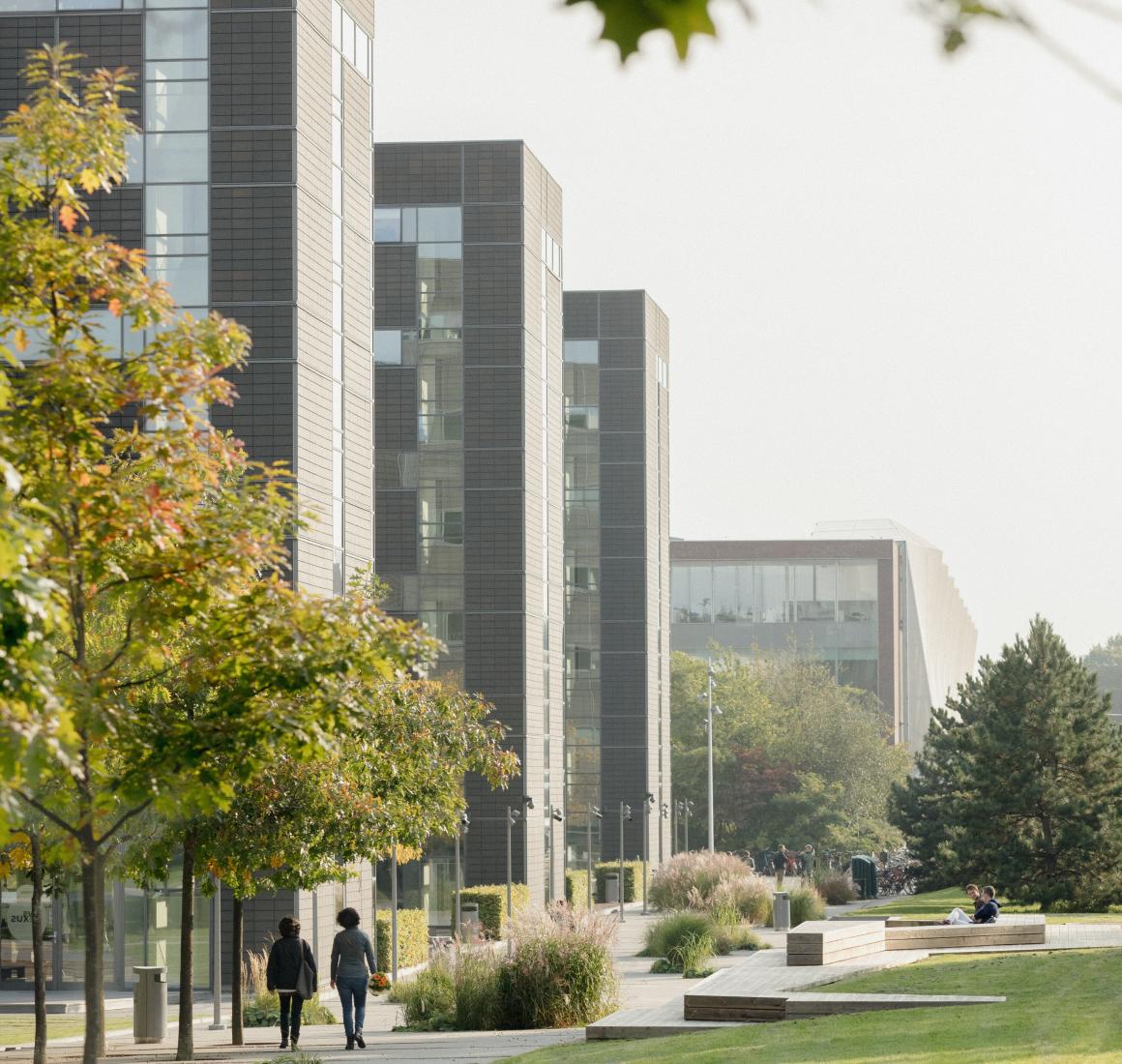MSc in Business Administration and Innovation in Health Care
The MSc IHC programme gives you an understanding of the challenges that health care systems are facing around the world. You'll learn to analyse health care innovations as business cases and develop actionable skills for their design and implementation. The programme is developed and delivered jointly by CBS and the University of Copenhagen.
About MSc in Business Administration and Innovation in Health Care
Why study MSc IHC?
3 good reasons to choose MSc IHC
Health Care Innovation and Transformation
Sustainability and Responsible Impact
Artificial Intelligence and Digital Technologies
“ This programme appealed to me because the global healthcare industry is facing numerous structural, demographic, technological and financial challenges that require innovative solutions. ” Gargi
Student, MSc IHC
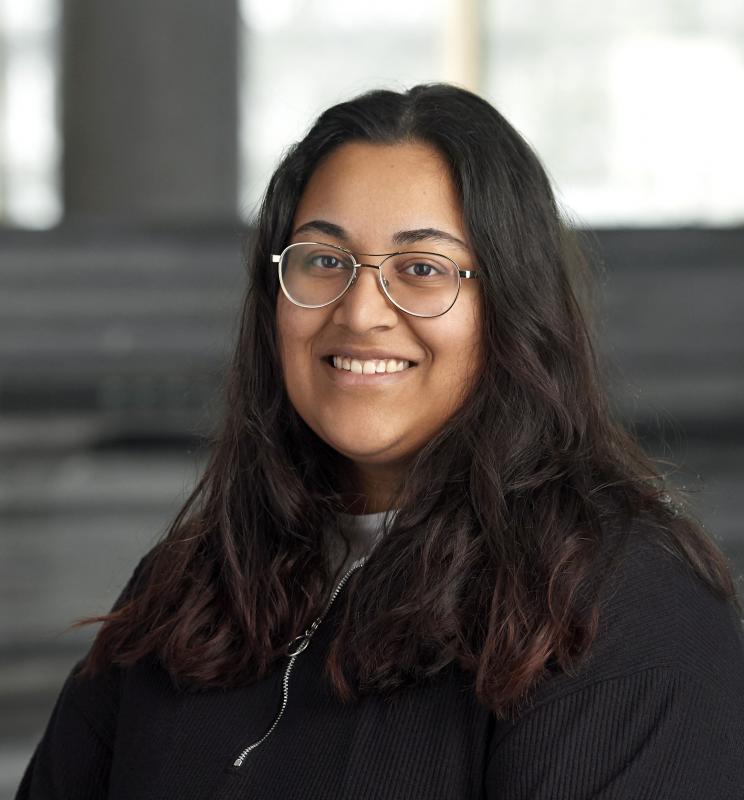
Driving transformation in health care
Health care systems around the world are under growing pressure from demographic shifts, rising costs, and rapid technological change. Meeting these challenges requires more than incremental improvements,it calls for innovation at scale. The MSc in Business Administration and Innovation in Health Care prepares you to become a driver of this transformation.
Innovation as business and societal impact
At the heart of the programme is the ability to see health care innovation as both a business opportunity and a societal necessity. You will learn to analyse new ideas, products, and services as business cases, while also understanding their impact on patients, organisations, and wider health systems. This dual perspective equips you to design solutions that are financially viable, socially responsible, and clinically meaningful.
“ I truly am impressed by the diversity of the programme. We are a mix of international students from both within and outside of Europe. ” Jozef
Student, MSc IHC
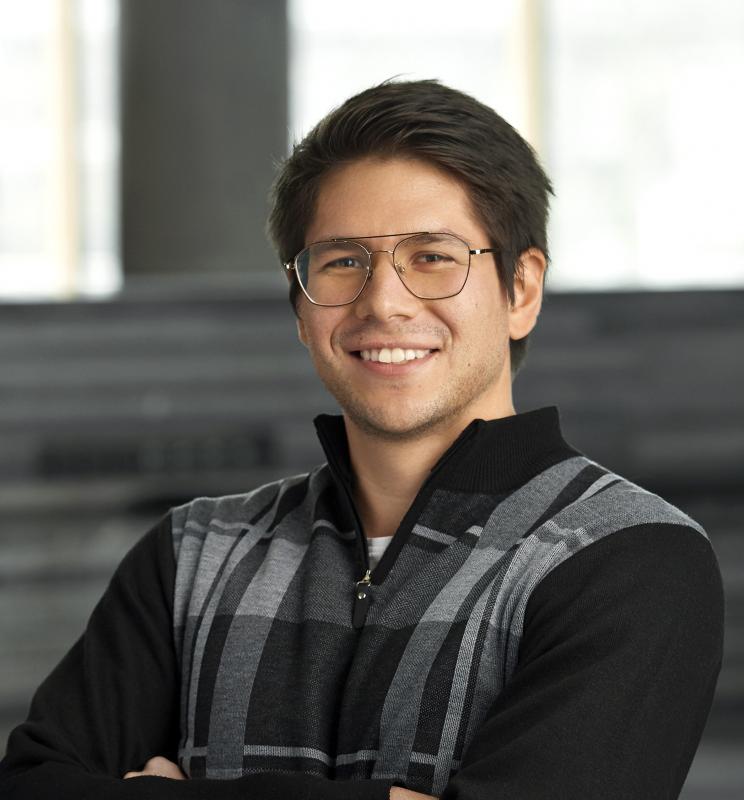
Sustainability and digital transformation
The MSc IHC programme has a central focus on sustainability and digital transformation. You will explore how health care can become more resource-efficient and environmentally sustainable, while also learning how artificial intelligence, data, and digital technologies are reshaping care delivery. This combination of sustainability and technology ensures you are prepared to tackle some of the most pressing issues facing the sector.
Preparing future leaders in health care innovation
The programme ultimately gives you the skills to initiate, manage, and implement innovation in complex health care settings—whether in hospitals, start-ups, medtech, or global pharmaceutical companies. By bridging business and health care, you will be ready to contribute to a future where health systems are smarter, greener, and more human-centred.
Open day for master programmes 2026
Are you considering a master programme at CBS? Come visit us for Open Day and hear about your opportunities .
Read more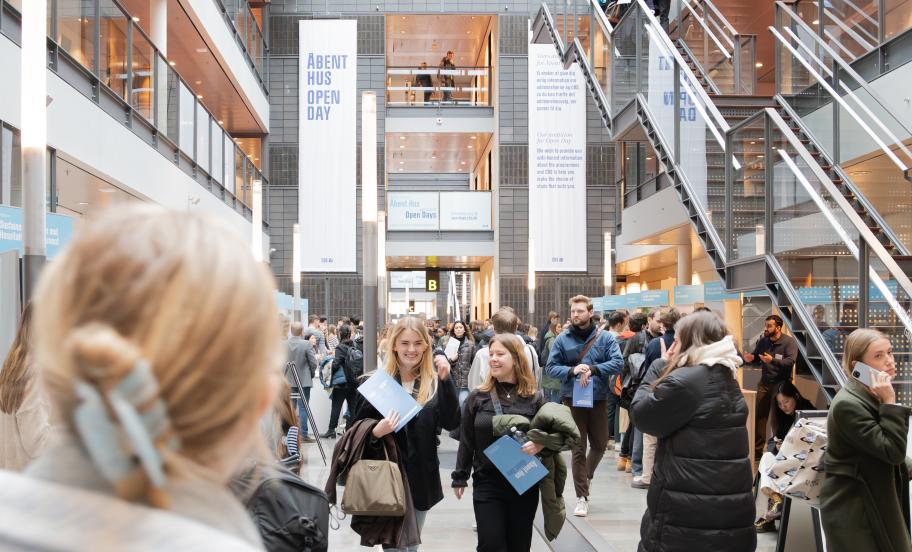
Info meetings about admission
Participate in the admission information meeting where we guide you through the application process and explain quota 1 and 2, language requirements and admission requirements.
Structure
Organisation and management
You learn how leadership and collaboration shape change and development in complex health care systems. Organisation and management in Business Administration and Innovation in Health Care focus on how structure, strategy, and coordination support transformation across organisations and sectors.
Innovation and entrepreneurship
You learn how new ideas and solutions can improve health care services and systems. Innovation and entrepreneurship in Business Administration and Innovation in Health Care focus on how creativity, technology, and business approaches drive change and create value for patients, professionals, and organisations.
3 things to consider
Innovation over administration
Technology and data over routine processes
Change and transformation over stability
Choose a specialisation within the Health Care sector
Assessment and Digital Trends in Health Care
Where focus is on health tech assessment and IT- solutions in health care.
Health Care and Bioentrepreneurship
Where focus is on pharma and entrepreneurship.
Programme overview
Choose a specialisation below to see the programme overview:
Assessment and Digital Trends (Panel content)
1st semester
2nd semester
3rd semester
4th semester
Bio and Health Care Entreoreneurship (Panel content)
1st semester
2nd semester
3rd semester
4th semester
Programme overview
Assessment and Digital Trends in Health Care
where focus is on health tech assessment and IT- solutions in health care.
Health Care and Bioentrepreneurship
where focus is on pharma and entrepreneurship.
International exchange
where you will study aspects of innovation outside Denmark. The exchange stay will be with specific IHC partner universities. At the moment we have an exchange agreement with Nova School of Business and Economics in Portugal.
Master’s Thesis
The Master’s thesis project in the fourth semester is typically carried out in collaboration with one or two fellow IHC students. Throughout the IHC courses, you’ll encounter a blend of relevant theory and practical aspects.
More about the programme progression
First Semester: building your foundation
Your journey begins with an introduction to health care innovation and management. You’ll explore how health care systems work, learn how innovation is organised, and sharpen your analytical skills through courses in statistics. Guest lecturers from hospitals, start-ups, and the health tech industry will share real-world insights to connect theory with practice.
Second semester: real-world challenge
In your second semester, you’ll take part in a real-life health care innovation challenge, working on solutions to problems faced by hospitals, companies, or health organisations. Alongside this project, you’ll learn about clinical processes and Health IT, with plenty of cases presented by professionals who are driving change in the field today.
“ Even though the multidisciplinary background of the students is a key strength, it can also make the initial phase a bit tough. ” Gargi
Student, MSc IHC

Open day for master programmes 2026
Are you considering a master programme at CBS? Come visit us for Open Day and hear about your opportunities .
Read more
Study environment
The MSc IHC programme offers an interdisciplinary study environment, bringing together students from health, life sciences, social sciences, and business. Many combine their studies with part-time jobs in Copenhagen’s medtech and pharmaceutical industries, adding valuable real-world perspectives to classroom learning. This mix of backgrounds and experiences creates a dynamic, practice-oriented environment that prepares you for innovation at the intersection of business and health care.
Student life at CBS
Studying at CBS is much more than just preparing for and going to classes.
At CBS, there are more than 20,000 students with different backgrounds and nationalities. Teamwork is an essential part of studying at CBS both in classes and in extracurricular activities.
With more than 100 student organisations, you also have plenty of opportunities to engage and connect with students across programmes and classes.
Learn more about the vibrant student life at CBS, the student organisations, and the international environment on Student life.
Meet the students
Student life at CBS
Being a CBS student is about more than going to lectures and doing exams.
Get a glimpse of student life at CBS. Here, you can explore what a typical day of teaching and exams looks like.
Also, you can learn how our programmes are structured and read about social life on campus, including the many ways to connect with fellow students.
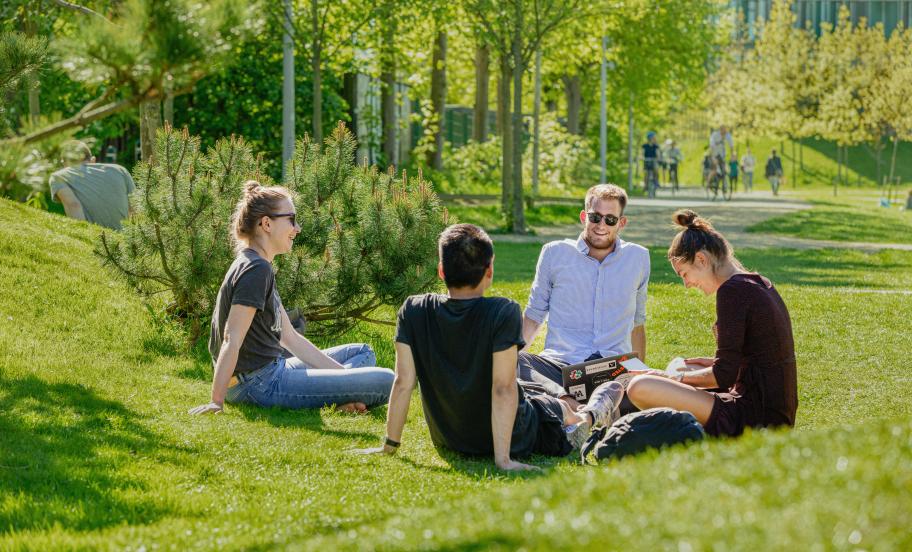
Teaching and Exams
Teaching
Interdisciplinary Learning and Teamwork
The MSc IHC programme places a strong emphasis on interdisciplinary learning and collaborative teamwork. Most of the courses are specifically designed for the programme, and you’ll take these courses alongside fellow students.
Read more on Teaching and working methods.
Exams
You will undergo various types of exams in the MSc IHC programme. Some exams are written, allowing the use of aids. Others are written without aids.
The third variant is an oral exam, usually based on a written report submitted prior to the oral examination.
Read more about Exams.
For internationals
Are you interested in studying at CBS as a full degree or exchange student? Or participating in CBS Summer University? Are you a freemover or do you want to study a single course? Here you can find information regarding how to apply, how to prepare for life in Denmark and what studying at CBS is like. Welcome!
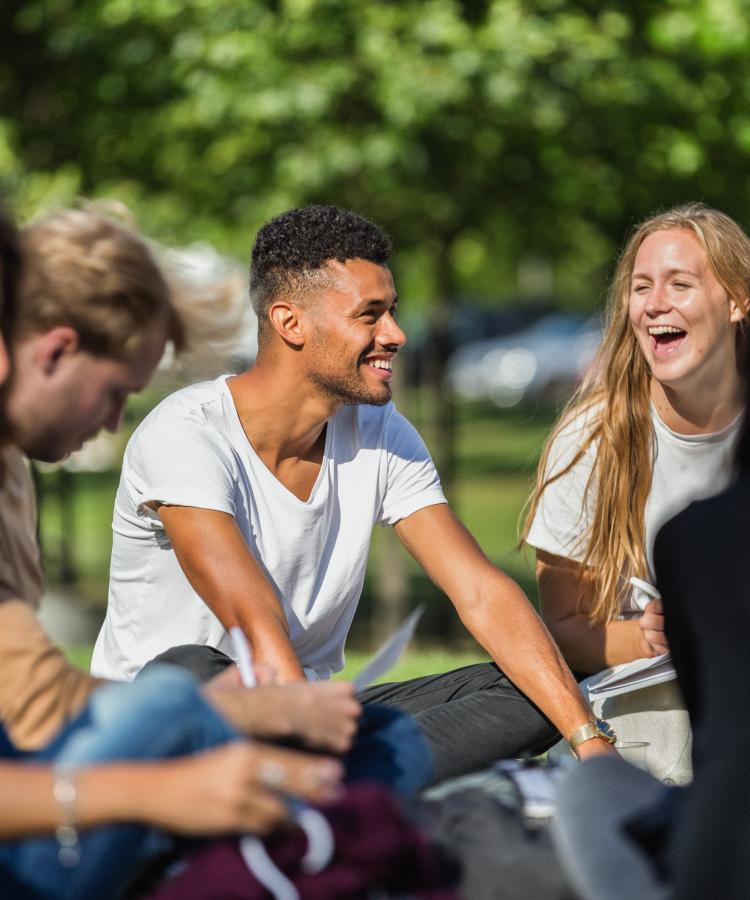
Time consumption
Workload
You should know that it is demanding to study in a graduate programme, and both the curriculum and workload is significantly higher than at bachelor level.
If you are studying on a full-time graduate programme, you should expect spending approximately 37 hours on average on your studies each week. The workload will vary during the year.
Hectic around exams
The time leading up to assignment submissions and exams can be hectic, and you can easily work more than 40 hours a week in this period. Preparing for oral exams can be especially time consuming, because you have to be able to explain and discuss the covered concepts and theories and learn things by heart.
Read more on Teaching and working methods
Student job
Most programmes are quite flexible in terms of combining studies with a student job. Most students work a maximum of 15 hours a week in order to have sufficient time for their studies.
Studying in Denmark - for internationals
If this is your first time studying in Denmark, you may find teaching and exam formats, the grading scale and the academic calendar very different from what you are used to.
Read about everything you need to know as an international student studying at CBS on International students
In need of special support?
Do you have a disability such as dyslexia, anxiety, autism, ADHD, long-term effects of concussion or another physical, psychological or neurological disability?
Then you have the opportunity to apply for Special Educational Support (SPS) and special conditions while studying.
This ensures you can study on equal terms with your fellow students.
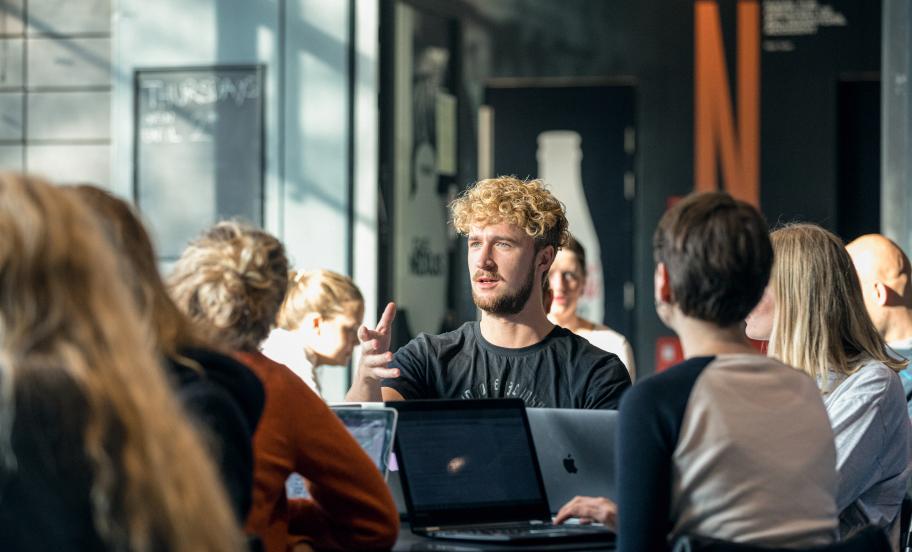
Entry requirements
Admission in numbers
Entry requirements
You are qualified for admission to the study programme if you fulfil the following requirements.
Please note that fulfilling the requirements does not guarantee you a study place.
1. Bachelor degree
2. Language requirement
3. Academic requirements
1. Bachelor degree
You must hold a bachelor degree to fulfil the general requirement for admission to CBS’ master programmes. You must have completed your bachelor degree before study start.
Legal claim
No applicants have a legal right of admission to this programme as it is not the natural progression for any bachelor degree.
Have you not yet completed your bachelor degree?
You can apply for admission even if you have not yet completed your bachelor’s degree. However, you must finish it before study start. If you are offered a place, you will be conditionally admitted, which means:
- You must complete your bachelor’s degree before you can begin your studies at CBS.
- You must upload your bachelor diploma and transcript no later than 31 August.
2. Language requirement
English B with minimum grade level 2.0 (Panel content)
The language requirement
The language requirement is English level B, which must be passed with a minimum grade point average of 2.0
Documentation deadline
You must fulfil and document the language requirement before the application deadline.
Check if you fulfil the language requirement
In the tabs above, you can see how to document English level B from a Danish upper secondary exam.
If you do not hold a qualifying Danish upper secondary exam, you can see other ways of meeting the requirement.
We only accept the qualifications and documents listed on this page.
Danish upper secondary exam (Panel content)
Required courses and levels
Danish upper secondary exam or
If you have passed English level B from an upper secondary school in Denmark (ie. stx, hhx, htx, hf) you fulfil this requirement.
English level B must be passed with a minimum grade point average of 2.0.
If you have passed English level A, then you also fulfil the English level B requirement.
Supplementary upper secondary courses
English B as a single subject via secondary school supplementation (Gymnasialt suppleringskursus (GSK)) or as a Higher Preparation Examination single subject (HF-enkeltfag).
English level B must be passed with a minimum grade point average of 2.0.
Individual competency assessment (IKV)
If you think you have language competences corresponding to an English level A, you have the possibility to request an assessment - Individuel Kompetencevurdering (IKV) from a Danish VUC (adult education centre).
Required documentation
Danish upper secondary exam or supplementary upper secondary courses
Upper secondary (ie. stx, hhx, htx, hf) certificate:
- a scan/photo of the original, stamped and signed hard copy or
- a digitally signed certificate downloaded from Min Kompetencemappe
Individual competency assessment (IKV)
Official IKV assessment
Other upper secondary exams (Panel content)
Find your country
International Baccalaureate (IB)
Required qualifications
- English A1, higher level
- English A2, higher level
- English B, higher level
- English A1, standard level
- English A2, standard level
- English A Language and Literature, higher level
- English A Language and Literature, standard level
- English A Literature, higher level
- English A Literature, standard level
- English B, standard level
Required documentation
Official IB diploma and/or transcript.
Alternatively, you can give CBS access to your results via IBO.org.
European Baccalaureate (EB)
Required qualifications
- L I
- L II
- L III – 6 years
- L III – 4 years
- L IV – 4 years (4 hours)
Grade requirement
Equivalent to 2.0 on the Danish grading scale:
- 2020 and before: minimum 6.00
- From 2021: minimum 5.00
Required documentation
Official EB diploma and/or transcript
Austria
Required qualifications
English as a first foreign language, min. 9 weekly hours accumulated during the final three years of the Oberstufe.
Grade requirement
Equivalent to 2.0 on the Danish grading scale:
- Minimum grade: 4
Required documentation
Reife- und Diplomprüfung diploma certificate including Stundentafel covering (min.) 5 years of the Oberstufe.
Reifeprüfung diploma certificate including Stundentafel covering (min.) 4 years of the Oberstufe.
Australia
Required courses and levels
A complete upper secondary education from Australia, where the majority of the education has been taught in English, fulfils the English B language requirement.
Required documentation
Senior Secondary Certificate of Education (SSCE) as well as Statement of Result or Record of Achievement or Qualifications Certificate, covering subjects and grades during the last two years of the secondary education.
Belgium (French part)
Required qualifications
- English Langue moderne 1
- English Langue moderne 2
Grade requirement
Equivalent to 2.0 on the Danish grading scale:
- Minimum grade: 50
Required documentation
Certificat d’enseignement Secondaire Supérieur (C.E.S.S.): Section générale OR technique OR artistique AND
Grade transcript including the grades and hours for the final 3 years
Bulgaria
Required qualifications
- English as first foreign language (556 hours)
Grade requirement
Equivalent to 2.0 on the Danish grading scale:
- Minimum grade: 3
Required documentation
- Diploma za (Zavarsheno) Sredno Obrazovanie / za Sredno Obrazovanie and
- Grade transcript for Years 10, 11 and 12
Canada
Required courses and levels
A complete upper secondary education from Canada, where the majority of the education has been taught in English, fulfils the English B language requirement.
Required documentation
High School Diploma / Graduation Diploma (or equivalent for your province) as well as Transcript of grades / High School Results (or equivalent for your province)
Croatia
Required qualifications
Minimum total sum of 9 weekly lessons* over years 10, 11 and 12 in Foreign Language 1
* We look at the number of lessons, not the number of hours.
Grade requirement
Equivalent to 2.0 on the Danish grading scale:
- Minimum grade: 2
Required documentation
- Svjedodžba o Državnoj Maturi and
- Final 4 years of exam results
Czech Republic
Required qualifications
Minimum 3 lessons per week in the final three years of the Maturita (equivalent to level B2 in the first foreign language according to Eurydice)
Grade requirement
Equivalent to 2.0 on the Danish grading scale:
- Minimum grade: 4
Required documentation
- Vysvedcení o Maturitni zkoušce and
- Exam results for all years of the Vysvedcení o Maturitni zkoušce and
- School document showing the number of lessons per week for the final three years
England, Wales, Northern Ireland
Required courses and levels
- A complete upper secondary education taught in England, Wales or Northern Ireland or
- A level English Language or
- A level English Literature
Required documentation
- GCSE certificate(s) (with a min. of 6 subjects) as well as A-level (Advanced level) certificate(s) (with a min. of 3 subjects) both taken in the UK or
- Official A level certificate for either English Language or English Literature
Estonia
Required qualifications
Min. 8 "kursuste arv" in English
Grade requirement
Equivalent to 2.0 on the Danish grading scale:
- 3 (Loputunnistus)
- 20 (Riigieksamenitunnistus)
Required documentation
- Gümnaasiumi Lõputunnistus and
- Hinnetekeht and
- Riigieksamenitunnistus
Finland
Required qualifications
- Minimum 8 English courses
Grade requirement
Equivalent to 2.0 on the Danish grading scale:
- Minimum grade: 5
Required documentation
- Official certificate - Ylioppilastutkintotodistus / Studentexamensbetyg) and
- Official transcript - Lukion päästötodistus/Avgångsbetyg från gymnasiet
France
Required qualifications
- English Langue vivante A
- English Langue vivante B
- English Langue vivante I
- English Langue vivante II
Grade requirement
Equivalent to 2.0 on the Danish grading scale:
- Minimum grade: 10
Required documentation
- Baccalauréat general diploma and
- Relevé des notes
Germany
Required qualifications
- Regardless of federal state: English studied in each of the four half-years of the Qualifikationsphase, passed with an average of 9 points (punkte) or higher in total
- For Waldorfschule/Rudolf Steiner Schule: English passed (9 points (punkte) or higher) as a Prüfungsfach in the Abiturprüfung
Grade requirement
Equivalent to 2.0 on the Danish grading scale:
- Minimum grade: 5 Punkte
Required documentation
- Exam certificate Abiturzeugnis and
- Exam results for exams (finals) and half-year results for the final 2 years
Hungary
Required qualifications
English as a first foreign language
Grade requirement
Equivalent to 2.0 on the Danish grading scale:
- Minimum grade: 2
Required documentation
- Gimnaziumi erettsegi bizonyitvany and
- Gimnaziumi bizonyitvany
Iceland
Required qualifications
For upper secondary studies completed according to the 2008 reform:
Minimum 15 Fein (new credits) obtained in English; of these, minimum 10 Fein must be at Þrep (qualification level) 3 or higher
For upper secondary studies completed according to the 1999 reform:
Minimum 15 einingar (old credits) obtained in English; at least one English subject must be at level 5 or higher (ENS 103+203+303+403+503)
Grade requirement
Equivalent to 2.0 on the Danish grading scale:
- Minimum grade: 5 (modulebase)
Required documentation
- Stúdentspróf (the diploma must include all course codes)
- Remember to upload your Icelandic diploma, not only the English version.
Ireland
Required qualifications
A complete upper secondary education from Ireland, where the majority of the education has been taught in English.
Grade requirement
Equivalent to 2.0 on the Danish grading scale:
7 (Ordinary Level)
7 (Higher Level)
D3
Required documentation
The Established Leaving Certificate Examination (Leaving Cert) with a min. of 6 subjects total
Italy
Required qualifications
- Classico: English as the obligatory first foreign language
- Scientifico: English as the obligatory first foreign language
- Linguistico: English as the obligatory first, second or third foreign language
- Artistico: English as the obligatory first foreign language
- Scienze umane: English as the obligatory first or second foreign language
- Musicale e coreutico: English as the obligatory first foreign language
Grade requirement
Equivalent to 2.0 on the Danish grading scale:
- 6 (0-10 scale)
- 36 (0-60 scale)
- 60 (0-100 scale)
Required documentation
- Diploma di Esame di Liceo (Classico/Scientifico/Linguistico/Artistico/Scienza Umane/Musicale e Coreutico) and
- Scrutinio di quinta superior
Latvia
Required qualifications
The obligatory course in English (first foreign language) fulfils the requirement
Grade requirement
Equivalent to 2.0 on the Danish grading scale:
- Minimum grade: 4
Required documentation
- Atestâts par vispârējo vidējo izglîtîbu and
- Pielikums atestâtam par vispârējo vidējo izglîtîbu and
- Vispârêjâs vidējâs izglîtîbas sertifikâts
- Izglîtîbas satura un eksaminâcijas centra sertifikâts (only if there is a State exam in one or more subjects)
Lithuania
Required qualifications
- English (1. foreign language) as bendrasis kursas (basic level)
- English (1. & 2. foreign language) as isplestinis kursas (high level)
Grade requirement
Equivalent to 2.0 on the Danish grading scale:
- Minimum grade: 4
Required documentation
- Brandos Atestatas and
- Brandos Atestatas Priedas
Luxembourg
Required qualifications
- A minimum of 210 full teaching hours (of 60 minutes per hour) with an exam passed at upper secondary school level
Grade requirement
Equivalent to 2.0 on the Danish grading scale:
- Minimum grade: 30
Required documentation
- Diplôme and
- Certificat de notes
Malta
Required qualifications
- I level English
Grade requirement
Equivalent to 2.0 on the Danish grading scale:
- Minimum grade: E
Required documentation
- Matriculation Certificate and Advanced Level Certificate and Intermediate Level Certificate
The Netherlands
Required qualifications
- The obligatory course in English fulfils the requirement
Grade requirement
Equivalent to 2.0 on the Danish grading scale:
- Minimum grade: 6
Required documentation
- Voorbereidend Wetenschappelijk Onderwijs Diploma and
- Cijferlist
Norway
Required qualifications
- Engelsk VG English 1 (SPR3029 & SPR3030)
or - Engelsk VG2 International English (SPR3008 & SPR3009)
Grade requirement
Equivalent to 2.0 on the Danish grading scale:
- Minimum grade: 2 (average of all courses)
Required documentation
- Official (digitally signed) transcript for the Vitnemål for videregående opplæring
New Zealand
Required qualifications
A complete upper secondary education from New Zealand, where the majority of the education has been taught in English, fulfils the English B language requirement.
Required documentation
National Certificate of Education Achievement (NCEA) levels 1 and 2 and 3
Portugal
Required qualifications
- Cursos gerais do ensino secundário - Humanidades: 1. Foreign Language in English
- Cursos científico-humanísticos: The obligatory 1. Foreign Language in English or English as Opçoes C og D
Grade requirement
Equivalent to 2.0 on the Danish grading scale:
- Minimum grade: 10
Required documentation
- Exam certificate and
- Documentation from school confirming the level of your subjects/your total number of classes within the specific entry requirements
Romania
Required qualifications
- Theoretical line: Humanities; Specialisation: Filologie English fulfils the entry requirement
- Theoretical line: Humanities; Social Studies English fulfils the entry requirement
Grade requirement
Equivalent to 2.0 on the Danish grading scale:
Minimum grade: 5
Required documentation
- Diploma de bacalaureat and
- Foaie matricola
Scotland
Required qualifications
A complete upper secondary education from Scotland, where the majority of the education has been taught in English, fulfils the English A language requirement.
Required documentation
Scottish Qualification Certificate as well as Summary of Attainment, Detail Record of Attainment and Profiles
Singapore
Required qualifications
A complete upper secondary education from Singapore, where the majority of the education has been taught in English, fulfils the English B language requirement.
Required documentation
Singapore-Cambridge GCE A-level exam certificate with a min. of 4 (H1, H2 and H3) exams total, as well as General Paper and Project Work
Slovakia
Required qualifications
- 1. Foreign Language in English with a minimum of 210 taught hours
Grade requirement
Equivalent to 2.0 on the Danish grading scale:
- Minimum grade: 4
Required documentation
- School-Leaving Exam Certificate – Vysvedcenie o maturitnej skúske and
- Supplement to Certificate of School-Leaving Examination and
- Grade transcripts for years 10, 11 and 12
Slovenia
Required qualifications
- The obligatory course in English as first foreign language fulfils the requirement if passed during the 2nd, 3rd and 4th year.
Grade requirement
Equivalent to 2.0 on the Danish grading scale:
- Minimum grade: 2
Required documentation
- Spricevalo o splosni maturi / Maturitetno sprièevalo and
- Obvestilo o uspehu pri splosnui mature and
- Letno spricevalo for the 4th year
South Africa
Required qualifications
A complete upper secondary education from South Africa, where the majority of the education has been taught in English, fulfils the English B language requirement.
Required documentation
National Senior Certificate (Matric/Matriculation Certificate) as well as grade transcript covering subjects and grades during all three years of studies
Spain
Required qualifications
- English as the obligatory first foreign language
Grade requirement
Equivalent to 2.0 on the Danish grading scale:
- Minimum grade: 5
Required documentation
- Título de Bachiller / Bachillerato exam certificate
Sweden
Required qualifications
- Before 2014: Engelska min. Kurs C
- After 2014: Engelska steg 7 (ENGENG07)
Grade requirement
Equivalent to 2.0 on the Danish grading scale:
- Minimum grade: E (A to F scale) 10 / G (Prior to the latest reform)
Required documentation
- Official transcript for Gymnasieexamen från ett högskoleförberedande program or Slutbetyg från Gymnasieskolan
United States
Required qualifications
A complete upper secondary education from the United States, where the majority of the education has been taught in English, fulfils the English B language requirement.
Required documentation
High School Diploma as well as High School Grade transcript (covering all four years’ worth of subjects and grades) taken in the US.
Language tests (Panel content)
Other options to fulfil the language requirement
TOEFL
TOEFL internet-based test (iBT)
A TOEFL iBT test result of at least 83 is required.
Your scores are valid only if they are no more than two years old by the application deadline.
We accept TOEFL iBT Home Edition but note that MyBest scores are not accepted.
Read more about the TOEFL and how to register.
Required documentation
Your TOEFL scores will be verified in the TOEFL database. You must list Copenhagen Business School as one of your score recipients when you sign up for the TOEFL test, or order a score sheet for Copenhagen Business School if you have already taken the test.
The TOEFL institution code for CBS is 7035.
You must upload either your digital copy, or a scan of your hard copy, TOEFL score sheet to the Application Portal.
IELTS
IELTS Academic test
An IELTS academic test result of at least 6.5 is required.
IELTS tests that are more than two years old by the application deadline are not accepted
We accept IELTS Online but note that IELTS One Skill Retake scores are not accepted.
Read more about IELTS and how to register
Required documentation
Your IELTS results will be verified in the IELTS database. Please instruct your test centre to make your results available to Copenhagen Business School, either when you book your IELTS test or after the test date.
You must also upload a scan of your IELTS test report form to the Application Portal.
If you have not received the physical test report form, you can upload a document with the "Test Report Form Number" (TRF Number) so we can verify your scores.
Cambridge
Cambridge exam
A Cambridge C2 Proficiency (Certificate of Proficiency in English) or a Cambridge C1 Advanced (Certificate of Advanced English) is required (no minimum score required).
Read more about Cambridge exams and how to register
Required documentation
You must upload your Cambridge C2 Proficiency (CPE) or Cambridge C1 Advanced (CAE) Statement of Results and/or Certificate.
Your results are only valid if they can be verified through the Candidate Results Website. Make sure to register for the service and share your results with Copenhagen Business School.
There is no expiration date on the validity of the CPE/CAE exam results.
3. Academic requirements
Your educational background will be assessed individually to determine whether your bachelor degree qualifies you for the programme and whether you fully cover the academic areas listed below as required.
The specific entry requirements are a min. sum total of 30 ECTS across one or more of the following areas:
- Organisation
- Quantitative methods
- Economics
- IT
- Epidemiology
- Human biology
- Pathology
- Physiology/anatomy
Check if you fulfil the academic requirements
Advance assessment (Panel content)
Check the advance assessments
CBS Admissions cannot make a pre-assessment of your individual qualifications before you apply for admission.
Find your bachelor programme
Instead, we have assessed a number of bachelor programmes. In these so-called advance assessments, you can see whether your bachelor degree fulfils the academic entry requirements.
An advance assessment shows whether the obligatory courses in your bachelor programme fulfil the academic requirements for a master programme at CBS.
We typically prepare an advance assessment when many applicants from the same bachelor programme apply for the same master programme.
You can find them by clicking on the tabs above.
Missing courses?
If you are missing courses, you may be able to fulfil the requirements through relevant elective courses or supplementary courses.
See what to do if you are missing courses to fulfil the academic requirements.
No advance assessment?
If your bachelor programme is not listed under the tabs above, you can make your own assessment of to what extent you meet the entry requirements through the courses you have taken in your bachelor programme and any supplementary courses.
Use the form below.
CBS (Panel content)
Qualifying bachelor degrees
If you have one of the following bachelor degrees, you fulfil the academic entry requirements for 2026:
BSc in Business Administration and Digital Management
Enrolled in 2022 or 2023
BSc in Business Administration and Service Management
Enrolled in 2022 or 2023
BSc in Business Administration and Sociology
Enrolled in 2022 or 2023
BSc in International Business
Enrolled in 2022 or 2023
BSc in International Business and Politics
Enrolled in 2022 or 2023
BSs in International Shipping and Trade
Enrolled in 2022 or 2023
BSc in Business, Language and Culture
Enrolled in 2022 or 2023
HA Almen
Enrolled in 2022 or 2023
HA EB
Enrolled in 2022 or 2023
HA PRO
Enrolled in 2022 or 2023
HA(fil.)
Enrolled in 2022 or 2023
HA(it.)
Enrolled in 2022 or 2023
HA(jur.)
Enrolled in 2022 or 2023
HA(kom.)
Enrolled in 2022 or 2023
HA(psyk.)
Enrolled in 2022 or 2023
Potentially qualifying bachelor degrees
Check to see how many ECTS-points you are missing in order to fulfil the academic entry requirements in 2026:
HA MAK
Enrolled in 2022 or 2023
- 7.5 ECTS
HD 2. del
Enrolled all years
- 30 ECTS within the academic requirements (relevant courses at HD 2. del level will be taken into consideration)
Denmark (Panel content)
Qualifying bachelor degrees
If you have one of the following bachelor degrees, you fulfil the academic entry requirements for 2026:
HA Almen
Regardless of institution
Enrolled all years
Samfundsvidenskabelig bachelor + Erhvervsøkonomi (HA) single subject (RUC)
Enrolled all years
International Bachelor in Social Sciences + Business Administration (single subject) (RUC)
Enrolled all years
BSc in Economics & Business Administration (AU)
Enrolled all years
BSc in Economics and Business Administration (AAU)
Enrolled all years
Bachelor i farmaci
Regardless of institution
Enrolled all years
Bachelor i folkesundhedsvidenskab
Regardless of institution
Enrolled all years
Bachelor i kommunikation og IT (KU)
Enrolled all years
Bachelor i medicin
Regardless of institution
Enrolled all years
Bachelor i medicin og teknologi (KU/DTU)
Enrolled all years
Bachelor i molekylær biomedicin (KU)
Enrolled all years
Bachelor i molekylær medicin (AU)
Enrolled all years
Bachelor i sundhed og informatik (KU)
Enrolled all years
Professionsbachelor i fysioterapi
Regardless of institution
Enrolled all years
Professionsbachelor i jordemoderkundskab
Regardless of institution
Enrolled all years
Professionsbachelor i radiografi
Regardless of institution
Enrolled all years
Professionsbachelor i sygepleje
Regardless of institution
Enrolled all years
Make a self-assessment
What is a self-assessment?
If there is no advance assessment available for your bachelor’s degree, you can make a so-called self-assessment of your educational background.
If there is an advance assessment of your bachelor degree showing that you are missing certain academic areas to fulfil the academic requirements, you can also use the self-assessment to show how you fulfil the missing academic areas.
Your self-assessment is not binding for us, but it can help you prepare your application and give us a better overview of your educational background.
How to make a self-assessment
Start by listing all the undergraduate courses you have taken, or are going to take, as part of your bachelor's degree or in addition to it, and compare them to the programme's academic requirements.
Read your course titles and descriptions carefully. Try to categorise the courses according to the master programme’s academic requirements.
To get an idea of how we assess each course category, you can use the course catalogue to see how we have categorised different CBS elective courses or CBS Summer University courses within each category.
Use the self-assessment form
We have created a form you can use for your self-assessment. The form is a tool to help you match your courses with the academic entry requirements for the programme and see to what extent you fulfil them.
Remember to include
- Courses you have already passed
- Courses you are currently taking
- Courses you expect to pass (e.g. supplementary courses at summer university)
Chance of admission
More applicants than places
This programme has a limited number of study places.
If there are more qualified applicants than available places, we will select the best qualified applicants. The selection is based on an overall assessment of the applicants’ educational background at bachelor’s level.
Selection criteria
In the selection of qualified applicants, we look at
- Analytical skills and experience with social science methodology
- Grades and relevance of educational background at undergraduate level
- Personal statement
Personal statement
The personal statement is your opportunity to describe yourself in relation to the master programme you are applying for.
You can, for example, describe:
- Your experience from work, studies, leisure activities or similar
- How your experience relates to the programme
- How the programme relates to your future career ambitions
Requirements for the personal statement
- Maximum 2 A4 pages
- Minimum font size 11
- In English
Connection to the Danish Labour Market
Your connection to the Danish labour market will be taken into consideration as part of the selection process. In your application, you will be asked to write a paragraph of no more than 500 characters (including spaces), describing your current circumstances and reflecting on your future career opportunities in Denmark.
Apply for admission
Info meetings about admission
Participate in the admission information meeting where we guide you through the application process and explain quota 1 and 2, language requirements and admission requirements.
Career
What gets you the job after MSc IHC?
Skills that make you stand out
The MSc IHC programme gives you a mix of business skills and health care insight. Danish employers in medtech, pharma, and digital health value graduates who can link innovation to business strategy, understand clinical contexts, and apply new technologies like AI and digital health solutions.
From classroom to career
MSc IHC graduates stand out through hands-on experience with hospitals, start-ups, and industry partners, often combined with part-time roles in Copenhagen’s health sector. This blend of theory and practice ensures you graduate ready for careers in innovation, strategy, and business development.
Competence profile
In the competence profile you can read about the purpose of the programme and the competencies you achieve in the programme: Competence profile for MSc in Innovation in Health Care.
What do you learn on MSc IHC?
Innovation management
Digital and AI Competence
Health care business insight
Career
Graduates work in various industries such as:
-
Private providers of health care, monitoring, safety
-
The globalized health industry
-
Hospitals
-
The Medico and Health-IT industries
-
Providers of software systems and applications, incl. clinical decision support solutions
-
Pharmaceutical firms (in their care-directed functions)
-
Patient’s organizations
-
Public health administration at national, regional and municipal levels
Typical job tasks for a graduate:
-
Analyse and evaluate health care innovations as business cases.
-
Design and implement new solutions in hospitals, medtech, or pharma companies.
-
Conduct market and technology assessments for digital health or medical devices.
-
Use data and AI tools to support decision-making and improve patient pathways.
-
Develop sustainable business models for health care products and services.
-
Collaborate with clinicians, engineers, and business experts on interdisciplinary teams.
Life long learning
We want you, as a student, to continue developing both personally and professionally throughout your life. CBS aims to support you in applying your knowledge in your organisation and company. Our goal is for you to keep expanding your knowledge and skills, to engage actively in organisational and societal development, and to contribute to shaping a sustainable and democratic society.
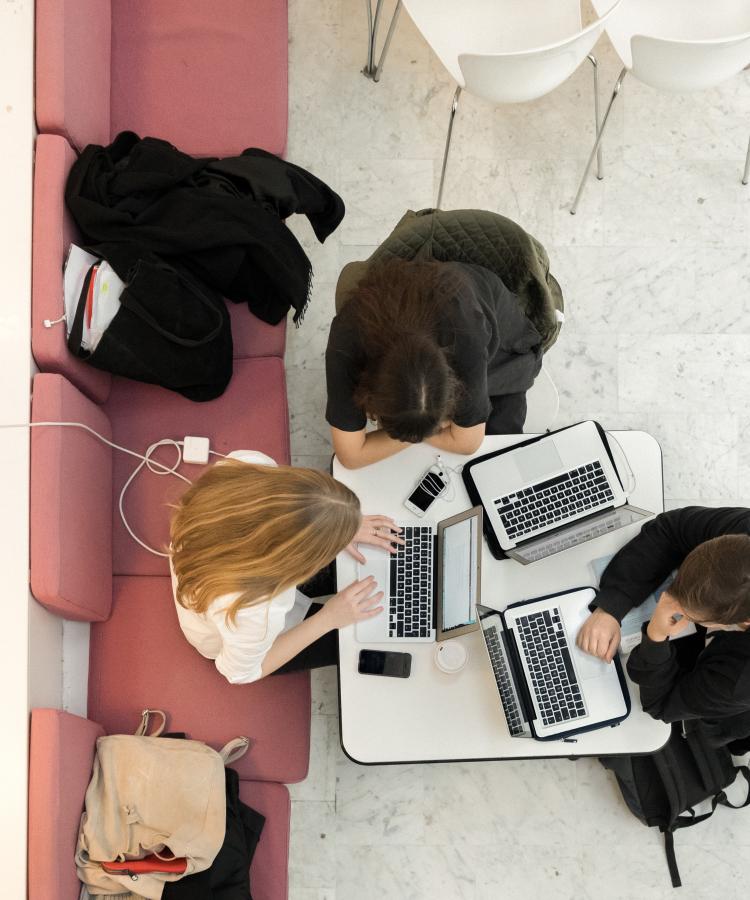
CBS and your career
With a programme from CBS, you are a step closer to pursue the career you aspire to. We work closely with a wide range of companies in Denmark because we continuously develop our programmes to match the needs of society. Read more about your career options here.
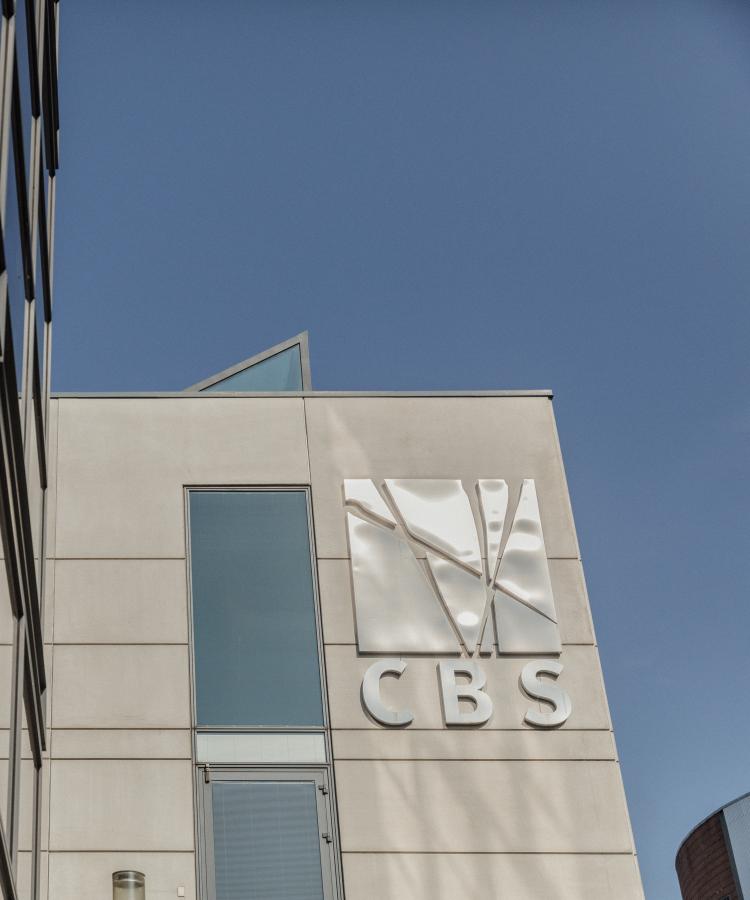
More on MSc in Business Administration and Innovation in Health Care
The MSc IHC programme gives you an understanding of the challenges that health care systems are facing around the world. You'll learn to analyse health care innovations as business cases and develop actionable skills for their design and implementation. The programme is developed and delivered jointly by CBS and the University of Copenhagen.
Other master programmes
Curious about similar study programmes? You may find other study programmes that also match your interests and dreams for your career.
